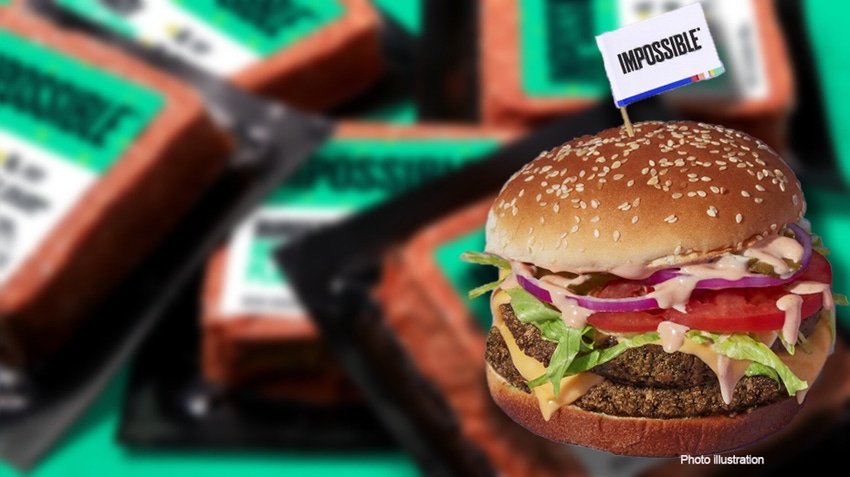Recent headlines reveal 2020 trends from the meat case
Grocers limiting purchases again. A lab-grown meat company opens in Israel. Impossible Foods hits Asia. Feedlots in the crosshairs again on climate change.
November 13, 2020

There’s a great deal of uncertainty right now, and I’m not going to lie, as I try to decipher the conflicting news reports that are coming in regarding the U.S. presidential election, the last thing I’m thinking about is how beef is competing in the meat case.
Yet, even as we grapple with the idea of how the regulatory and taxation environment might change in 2021, depending on how this presidential race will end, we also must keep an eye on the meat case and seek to understand what consumers are needing when they shop.
From consumers stocking up on essentials to being more willing to taste-taste plant-based alternatives, these recent headlines are a mixed bag. I’m sorry to pile on the bad news; I promise I’ll do a roundup of positive beef headlines soon, but in the meantime, here’s what’s going on in the retail world:
1. “How plant-based companies are fighting back against label censorship” by Nigel Barrella for Good Food Institute
Barrella writes, “Some in the conventional meat industry view this trend as a problem for their own bottom lines. But rather than competing for consumers’ dollars by advertising their own products, they want to tilt the playing field against the new plant-based competition using the coercive power of state censorship. Over the past few years, some lobbyists have sought to prevent plant-based producers from using ‘meaty’ words to describe their plant-based products, bringing their linguistic grievances to legislators across the United States.”
2. “The world’s first lab-grown meat restaurant opens in Israel” by Liam Pritchett for Live Kindly
Pritchett writes, “In a world-first, Israel is now home to a lab-grown meat restaurant. The Chicken, which just opened in Tel Aviv, serves lab-grown (also known as cultured or cell-based) chicken meat made from protein grown from cells in a bioreactor. The restaurant is situated next door to the production plant, which is visible to diners through a large window. The restaurant is open according to local COVID-19 restrictions.
“Currently, said diners are not required to pay for their meals. Instead, the test kitchen is asking for feedback on its lab-grown, cultured chicken as it ramps up to full-scale production. The new restaurant was founded by food tech company SuperMeat, which aims to bring high-quality meat—grown directly from animal cells—to the global food market.”
3. “Nearly a quarter of Americans are now eating plant-based meat alternatives” by Cameron Alvar for The Beet.
Alvar writes, “Since the pandemic buying spree sales of plant-based foods are up 35%, as more Americans who do not define themselves as vegan or even plant-based want to try the new meatless offerings that are flooding the market.”
4. “How to prep for new grocery store product limits amid COVID surge, Thanksgiving” by Kelly McCarthy for Good Morning America
McCarthy writes, “As the holidays draw close and coronavirus cases continue to surge across the U.S., Kroger was one of the national grocers that has started to limit purchases on toilet paper, paper towels, hand sanitizer and other disinfectant products temporarily.”
5. “Impossible Foods launches at grocery stores in Asia, will develop plant-based milk” by Jeanette Settembre for FOX Business
Settembre writes, “Impossible Foods, the maker of plant-based meat products that aim to mimic the look and taste of real meat, is now selling its imitation ground beef products in nearly 200 grocery store chains across Hong Kong and Singapore, the company announced Tuesday. The plant-based meat has been previously available at restaurants in both cities.”
6. “Belching cows and endless feedlots: Fixing cattle’s climate issues” by Henry Fountain for the New York Times
Fountain writes, “In the United States, cattle are far from the largest source of greenhouse gases, which include carbon dioxide, methane and others. Their total contribution is dwarfed by the burning of fossil fuels for electricity, transportation and industry. But livestock are among the largest sources of methane, which can have 80 times the heat-trapping power of carbon dioxide although it persists for less time.”
The opinions of Amanda Radke are not necessarily those of beefmagazine.com or Farm Progress.
About the Author(s)
You May Also Like





